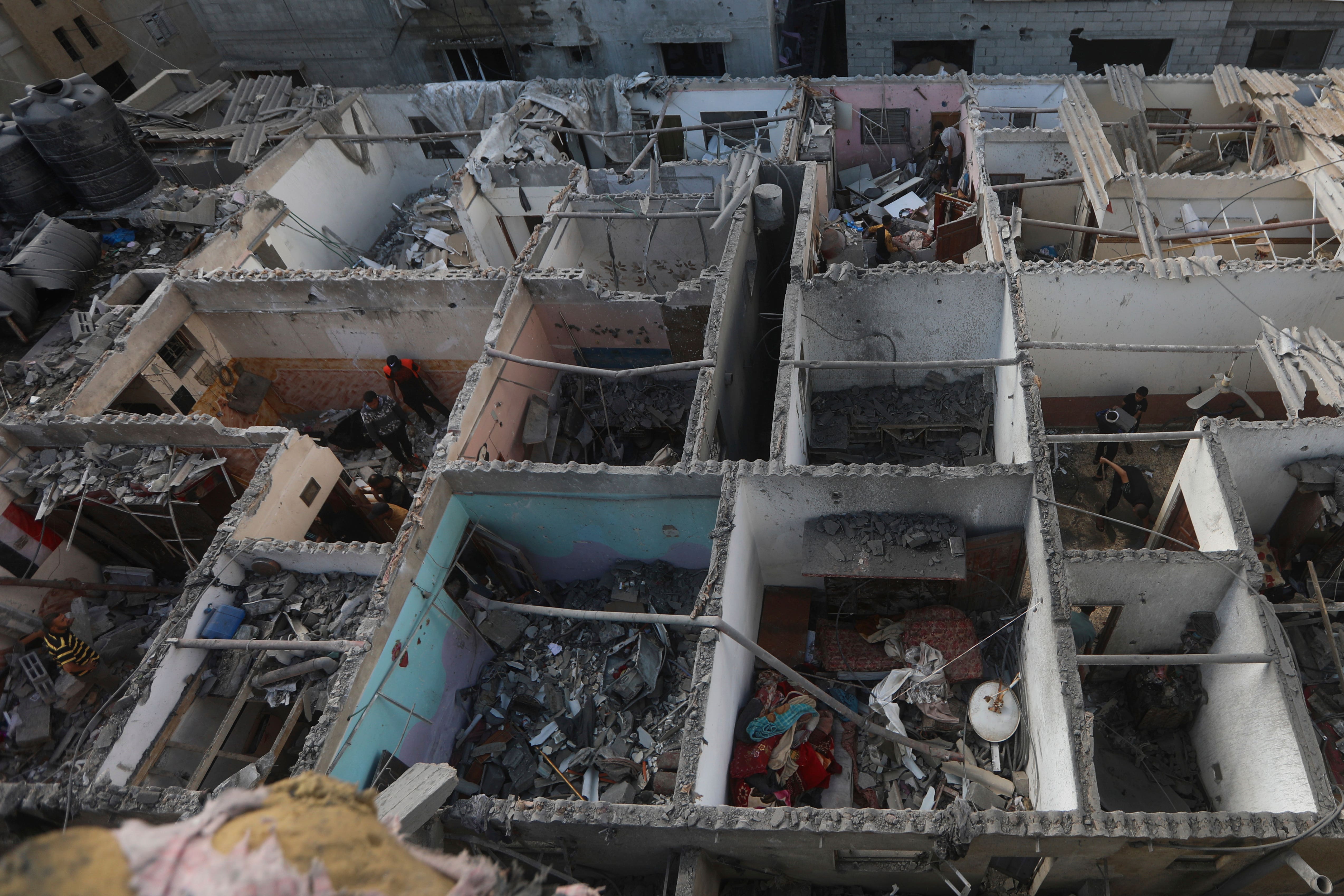Sunak ‘deeply concerned’ about Israel’s offensive in Rafah
Prime Minister Rishi Sunak said he had already raised concerns about the humanitarian impact of an assault on Rafah with Benjamin Netanyahu.

Your support helps us to tell the story
From reproductive rights to climate change to Big Tech, The Independent is on the ground when the story is developing. Whether it's investigating the financials of Elon Musk's pro-Trump PAC or producing our latest documentary, 'The A Word', which shines a light on the American women fighting for reproductive rights, we know how important it is to parse out the facts from the messaging.
At such a critical moment in US history, we need reporters on the ground. Your donation allows us to keep sending journalists to speak to both sides of the story.
The Independent is trusted by Americans across the entire political spectrum. And unlike many other quality news outlets, we choose not to lock Americans out of our reporting and analysis with paywalls. We believe quality journalism should be available to everyone, paid for by those who can afford it.
Your support makes all the difference.Israel has not demonstrated to the UK how it will safeguard civilians if it mounts a full-scale assault on Rafah, Downing Street said.
Prime Minister Rishi Sunak said he was “deeply concerned” about the potential humanitarian cost of an offensive around the city in southern Gaza which has become a refuge for Palestinians forced out of other areas in the war-ravaged territory.
The UK urged both sides in the Israel-Hamas conflict to focus on negotiations to end the bloodshed.
Israeli forces seized control of the Gazan side of the Rafah border crossing with Egypt, an important route for aid to reach the territory.
The United Nations Office for the Co-ordination of Humanitarian Affairs said the Israeli authorities had denied it access to the crossing.
On a visit in south-east London, Mr Sunak said: “I’ve been clear that we are deeply concerned about the full military incursion of Rafah, given the humanitarian consequences of that.
“I’ve made that point specifically to Prime Minister (Benjamin) Netanyahu whenever I’ve spoken to him.”
At a regular briefing in Westminster, the Prime Minister’s official spokesman said: “Israel, as the occupying power, has responsibility for ensuring that the civilian population is safe and has access to the food, water, medical care it needs.
“We have consistently made that point to Israel.
“We’ve not seen any plans in relation to the Rafah incursion along those lines, that’s why, as the PM said just yesterday, we remain deeply concerned about the prospect of a military incursion into Rafah given the number of civilians sheltering there and the importance of that crossing for aid.”
Shadow foreign secretary David Lammy questioned whether the Government believed an assault on Rafah could be “a clear risk of a serious breach of humanitarian law”, something which would trigger a ban on arms exports.
“Now, more than ever, we need an immediate ceasefire, the release of all hostages and unimpeded aid to Gaza,” Mr Lammy told MPs.
The diplomatic push for a pause in the fighting continued after Hamas said it accepted an Egyptian-Qatari mediated ceasefire proposal, which Israel rejected because it failed to meet Tel Aviv’s core demands.
Mr Sunak urged Israel and Hamas to “continue talking, negotiating, getting around the table”.
On a visit to south-east London, the Prime Minister said: “We’ve been consistent in saying that we want to see an immediate humanitarian pause in this conflict so that we can crucially release the hostages, get them back to their families and get more aid in to Gaza, people desperately need it, and then use that pause to build a more lasting and sustainable ceasefire.”